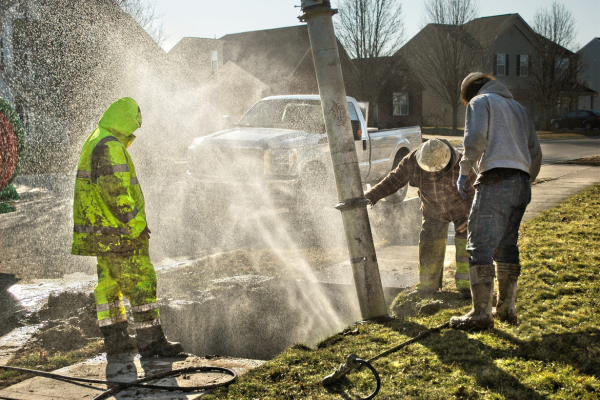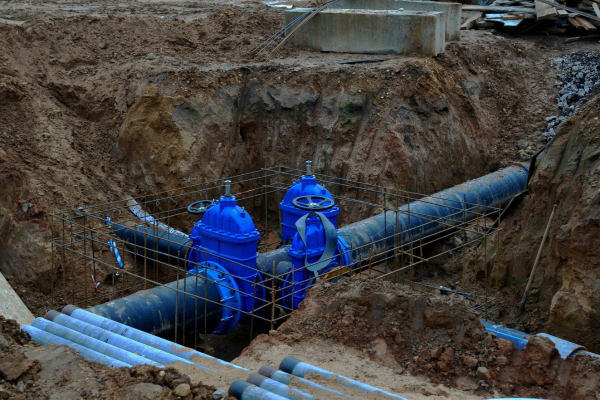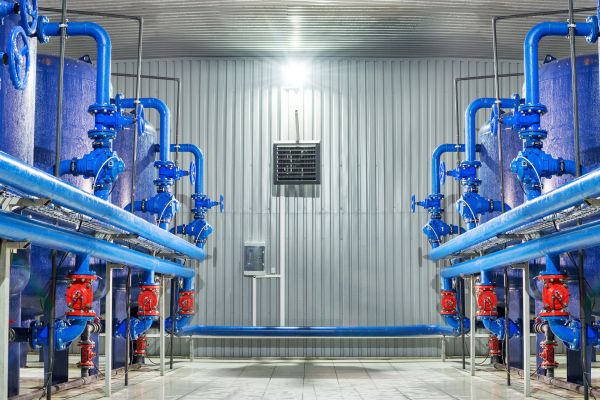EUSR Water Hygiene Explained
The water industry plays a vital role in public health and environmental protection; anyone working in contact with water, from engineers and contractors to operatives and supervisors, needs to be aware of the standards required to keep that water safe. That’s the purpose of the EUSR Water Hygiene course. In today’s blog, we’ll be breaking down the basics of this course, including the reasons why training in water hygiene matters, what the course actually involves, and more.

Why Training in Water Hygiene Matters
Water is one of the most sensitive resources when it comes to contamination. A single lapse in hygiene standards can affect thousands of people, and damage trust in water suppliers. Training ensures that everyone working in the industry understands their responsibility in protecting water quality.
By covering risks such as cross-contamination, personal hygiene standards, and best practices for working on-site, water hygiene training provides a framework for safe and professional conduct.
What Does the EUSR Water Hygiene Course Involve?
The course is designed to give operatives and supervisors a clear understanding of the rules and practices required when working with drinking water. The training covers essential topics such as:
- The importance of water as a food source and its sensitivity to contamination
- The risks associated with poor hygiene practices
- Correct use of protective clothing and PPE
- Working safely in environments where water systems may be vulnerable
- The need for vigilance against microbiological and chemical contamination
Participants also learn about personal responsibility, site conduct, and the legal obligations linked to water safety.
Who Needs to Complete EUSR Water Hygiene Training?
Any individual who works on clean water sites or comes into contact with potable water systems will need this qualification. This includes field operatives, contractors, plumbers, engineers, and supervisors. Without valid water hygiene training, workers could be denied access to sites, or prevented from carrying out their duties.
For employers, ensuring that staff hold the Water Hygiene card demonstrates compliance with industry regulations and a commitment to public safety. It also reassures clients and water companies that work is being carried out to the highest hygiene standards.

How Long Does the Qualification Last?
The card is typically valid for three years. Once it expires, workers are required to retake the course to ensure their knowledge remains up to date. This renewal process also allows individuals to refresh their awareness of hygiene standards, and learn about any updates to industry regulations or best practices.
Conclusion: EUSR Water Hygiene Explained
This EUSR scheme is a cornerstone of health and safety within the UK water industry. It ensures that workers who come into contact with clean water are aware of the risks, responsibilities, and regulations associated with maintaining hygiene standards.
For workers, it’s a professional credential that opens doors to employment opportunities across the sector. For employers, it provides reassurance that teams are trained, competent, and aligned with industry best practices.
Whether you’re just entering the water industry or looking to renew your qualification, this training is essential for keeping public water supplies safe, and maintaining trust in this critical sector.

If you still have any questions regarding the course, then do not hesitate to get in touch.
Phone – 020 3488 4472





